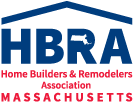A zoning by-law adopted by the Town of Hull requiring all newly constructed commercial buildings and residential buildings of three or more units to comply with one of three green building rating systems was recently struck down by Attorney General Maura Healey because it conflicted with the State Building Code. In her decision, Attorney General Healey noted that the Massachusetts State Building Code (“Code”) comprehensively regulates energy standards and the Supreme Judicial Court has ruled that, if the Code comprehensively regulates a topic, municipalities are preempted from adopting local requirements on the topic. Healey was referring to the case of St. George Greek Orthodox Cathedral of Western Mass. v. Fire Dep’t of Springfield, 426 Mass. 120 (2012), in which the SJC held that the Code preempted a city ordinance requiring a certain type of fire protection signaling system.
At its Annual Town Meeting last June, the Town of Hull approved Warrant Article 12 to amend its zoning by-law to add a new Section 410-6.5 “Green Buildings.” The stated goal of the by-law was to promote environmentally sustainable and energy-efficient design and development practices. The by-law required all new construction for commercial buildings and residential buildings of three or more units to demonstrate that they are designed to meet the standards of one of the following green building rating systems: (1) LEED (U.S. Green Building Council); (2) Passive House Institute, U.S. or Passivhaus Institute; or (3) Enterprise Green Communities.
Before a zoning by-law takes effect it must be approved by the attorney general. The attorney general’s review of a municipal by-law is limited as to whether the by-law (or any portion thereof) is inconsistent with the state Constitution or laws. The AG found that beginning with Chapter 802 of the Acts of 1972, as amended by Chapter 541 of the Acts of 1974, the Legislature eliminated local building codes in order to create a statewide comprehensive Building Code to be applied uniformly throughout Massachusetts. Therefore, “towns are precluded from having their own local building codes, including those that require energy-efficient design standards in structures.”
It was noted by the Attorney General that she had received a letter from the Division of Professional Licensure and the Board of Building Regulations and Standards (“BBRS”) agreeing with her determination that the State Building Code preempted the energy-efficient design standards in Article 12. The BBRS adopted the International Energy Conservation Code and integrated it into the State Building Code. These provisions of the Code establish the efficiency standards for a structure’s walls, floors, ceilings, lighting, windows, and multiple compliance pathways, allowing a building owner or developer to choose the least cost method of compliance. The three green certification programs referenced in the Hull Zoning By-law all included provisions governing the energy efficiency of new buildings, as well as other construction techniques and materials, that are explicitly regulated by the Code.
The decision by Attorney General Healey to disapprove Hull’s “Green Building” zoning by-law was of critical importance to homebuilders because a different decision would have led to other communities adopting similar by-laws.

